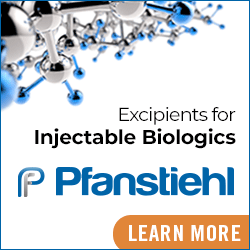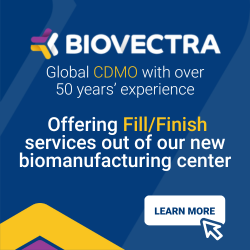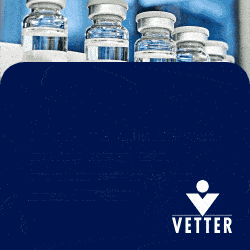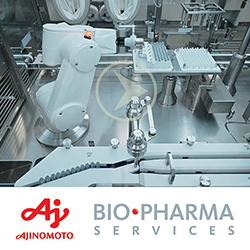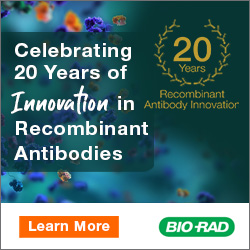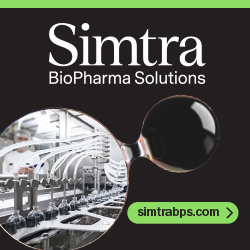Belite Bio Initiates Pivotal Phase 3 Clinical Trial of LBS-008 in Stargardt Disease in the US
Belite Bio, Inc. recently announced it has commenced enrollment for the US Phase 3 clinical trial of LBS-008 in patients with Stargardt Disease (STGD1), a progressively blinding disease with no approved treatment.
“STGD1 is the most common inherited retinal dystrophy causing blurring and/or loss of central vision in both adults and children,” said Dr. Tom Lin, Belite Bio’s Chairman and CEO. “With over 30,000 STGD1 patients alone in the US, we have a treatment with the potential to address a large unmet need with a clear clinical pathway to bring hope to patients afflicted with this debilitating disease.”
LBS-008 is an orally-available, small molecule retinol binding protein 4 (RBP4) antagonist that selectively reduces the delivery of vitamin A (retinol) to the eye, leading to a reduction of toxic vitamin A byproducts (bisretinoids) that have been implicated in the onset and progression of STGD1. Sponsored by the NIH Blueprint program to treat non-neovascular age-related macular degeneration (Dry AMD), LBS-008 is also endorsed by NIH as a promising first-in-class oral medication to slow or halt the progression of Dry AMD, a disease which primarily affects the elderly and shares a similar pathophysiology as STGD1. There are currently no approved treatments for STGD1 or Dry AMD by the U.S. Food and Drug Administration (FDA).
Belite Bio has completed multiple randomized, double-blind, placebo-controlled, Phase 1 trials of LBS-008 in healthy adult subjects, including a single ascending dose, or SAD trial in 40 subjects in the US, and a SAD trial in 39 subjects and a multiple ascending dose, or MAD, trial in 32 healthy adult subjects in Australia. These trials were conducted to confirm the safety, toxicity, PK, and PD of LBS-008 on a range of SAD (10-50 mg in the US; 25-400 mg in Australia) / MAD (5-25 mg in Australia) levels in healthy adult subjects in fasted/fed conditions. All dose levels were well tolerated.
Belite Bio is currently conducting a 2-year Phase 2 trial and a 2-year Phase 3 (DRAGON) trial of LBS-008 in adolescent STGD1 subjects. The Phase 2 trial has enrolled a total of 13 subjects at clinical sites in Australia and Taiwan. Preliminary data from the Phase 2 trial at the first 6-month interval shows that 8 of the 13 patients (or 61.5%) recorded a gain in best-corrected visual acuity (BCVA) in at least one eye, including 2 patients who recorded a BCVA gain in both eyes. In addition, there were no atrophic lesions in any of the 13 subjects at study start and only 1 subject showed evidence of a retinal lesion (~0.3mm2 in size) at 6 months. Belite Bio expects the next data readout of this Phase 2 trial to occur in the last quarter of 2022 when all subjects have completed 12 months of treatment.
The Phase 3 (DRAGON) trial, a randomized, double-masked, placebo-controlled, global and multi-center study, is designed to evaluate the safety and efficacy of LBS-008 in adolescent STGD1 patients. To date, the Company has commenced the Phase 3 clinical trial in the U.S., the United Kingdom, Germany, Belgium, Switzerland, Hong Kong, Taiwan, and Australia. Approximately 60 patients are targeted for enrollment in this study with a 2:1 randomization (active:placebo). (For more information, visit clinicaltrials.gov at https://www.clinicaltrials.gov/ct2/show/NCT05244304?term=belite+bio&draw=2&rank=1)
Additionally, because the accumulation of toxic bisretinoids has also been implicated in the progression of Dry AMD, Belite Bio believes that LBS-008 has the potential to be effective for the treatment of Dry AMD as well. Belite Bio plans to initiate a Phase 2/3 clinical trial for Dry AMD in the fourth quarter of 2022.
LBS-008 is a novel oral therapy that prevents the buildup of toxins in the eye that cause STGD1 and contribute to dry AMD. These toxins are by-products of the visual cycle, which is dependent on the supply of vitamin A (retinol) to the eye. LBS-008 works by reducing and maintaining levels of serum retinol binding protein 4 (RBP4), a carrier protein that transports retinol to the eye. By modulating the amount of retinol entering the eye, LBS-008 reduces the formation of toxins which have been implicated in STGD1 and dry AMD in order to maintain the health of retinal tissues. LBS-008 has been granted fast track designation, rare pediatric disease designation (RPD) in the U.S., and orphan drug designation (ODD) in the U.S. and Europe for the treatment of STGD1.
STGD1 is the most common inherited retinal dystrophy (causing blurring or loss of central vision) in both adults and children. The disease is caused by a dysfunctional retina-specific gene (ABCA4) which results in massive accumulation of toxic vitamin A byproducts (known as “bisretinoids”) in the retina leading to retinal cell death and progressive loss of central vision. The fluorescent properties of bisretinoids and the development of retinal imaging have helped ophthalmologists identify and monitor disease progression. Additionally, STGD1 and dry AMD share a similar pathophysiology characterized by excessive accumulation of cytotoxic bisretinoids, retinal cell death, and loss of vision. Vision loss occurs slowly, despite peripheral expansion of “dead retina”, until the disease reaches the center of the eye (the macula).
Dry AMD is a leading cause of vision loss in the U.S., and has zero approved treatments available. There are an estimated 11 million dry AMD patients in the U.S. and over 196 million patients worldwide with an estimated global direct healthcare cost of US$255 billion.
Belite Bio is a San Diego based clinical stage biopharmaceutical drug development company targeting currently untreatable eye diseases, such as atrophic age-related macular degeneration (commonly known as dry AMD) and Stargardt disease, and metabolic diseases. For more information, visit www.belitebio.com.
Total Page Views: 723






